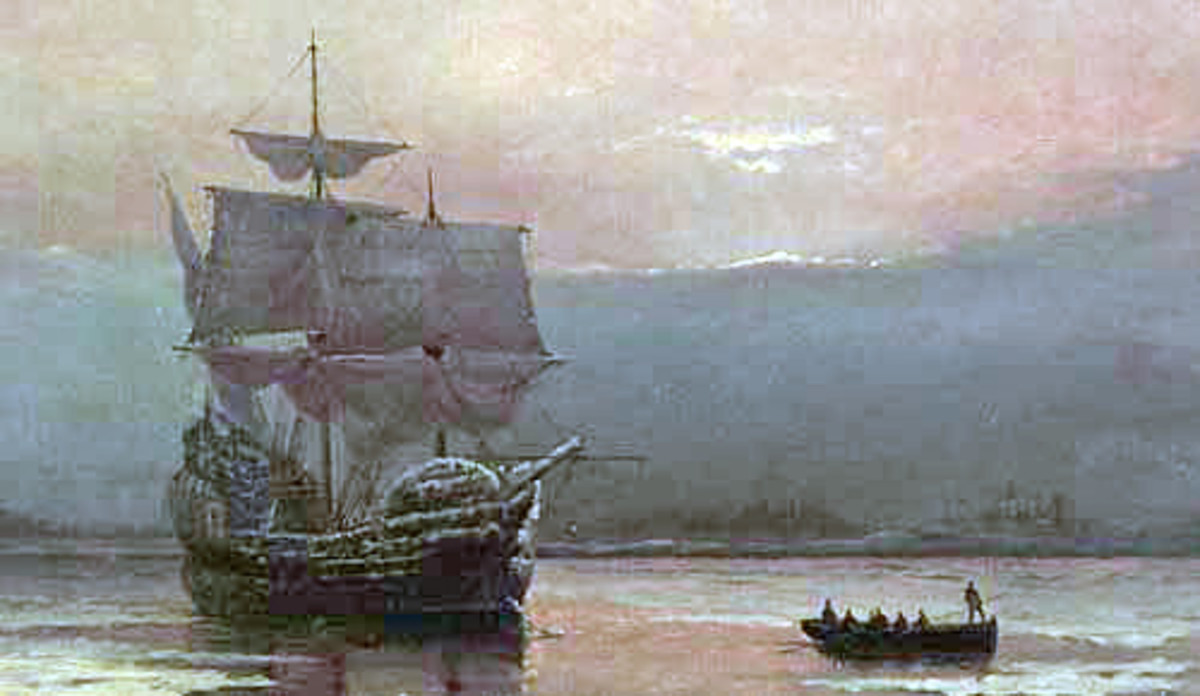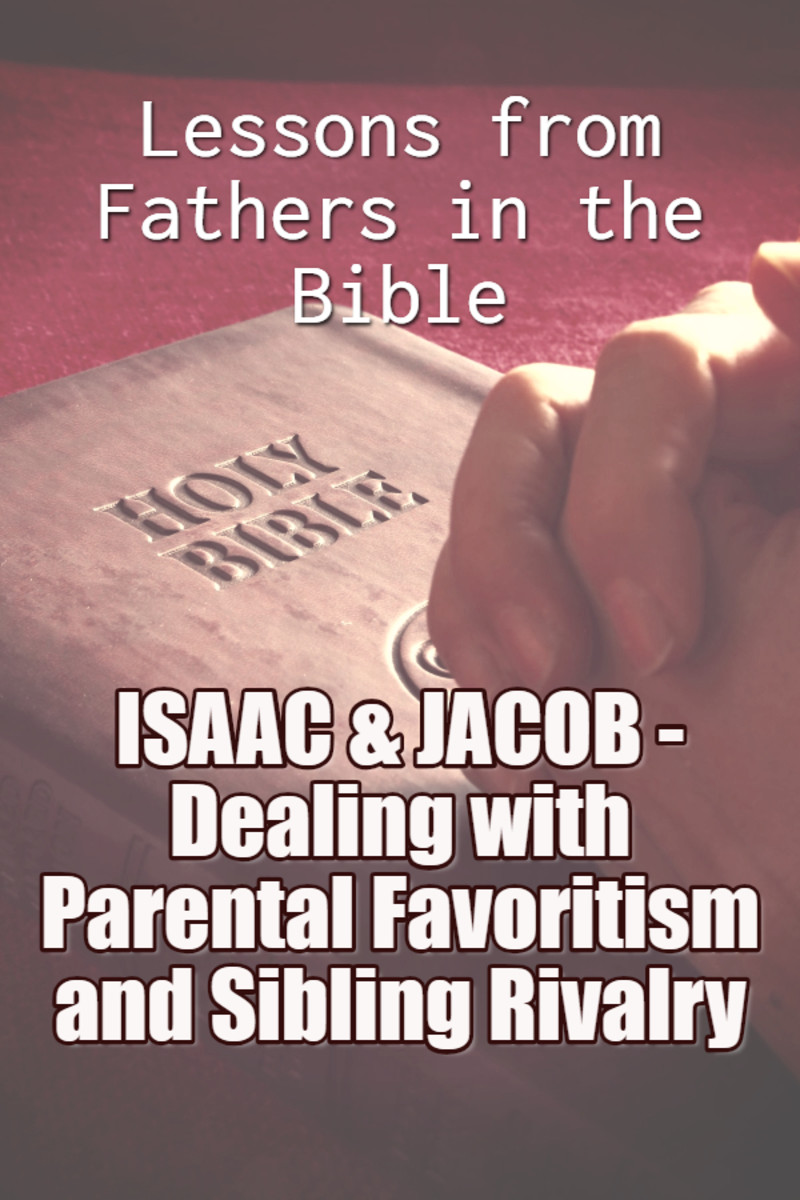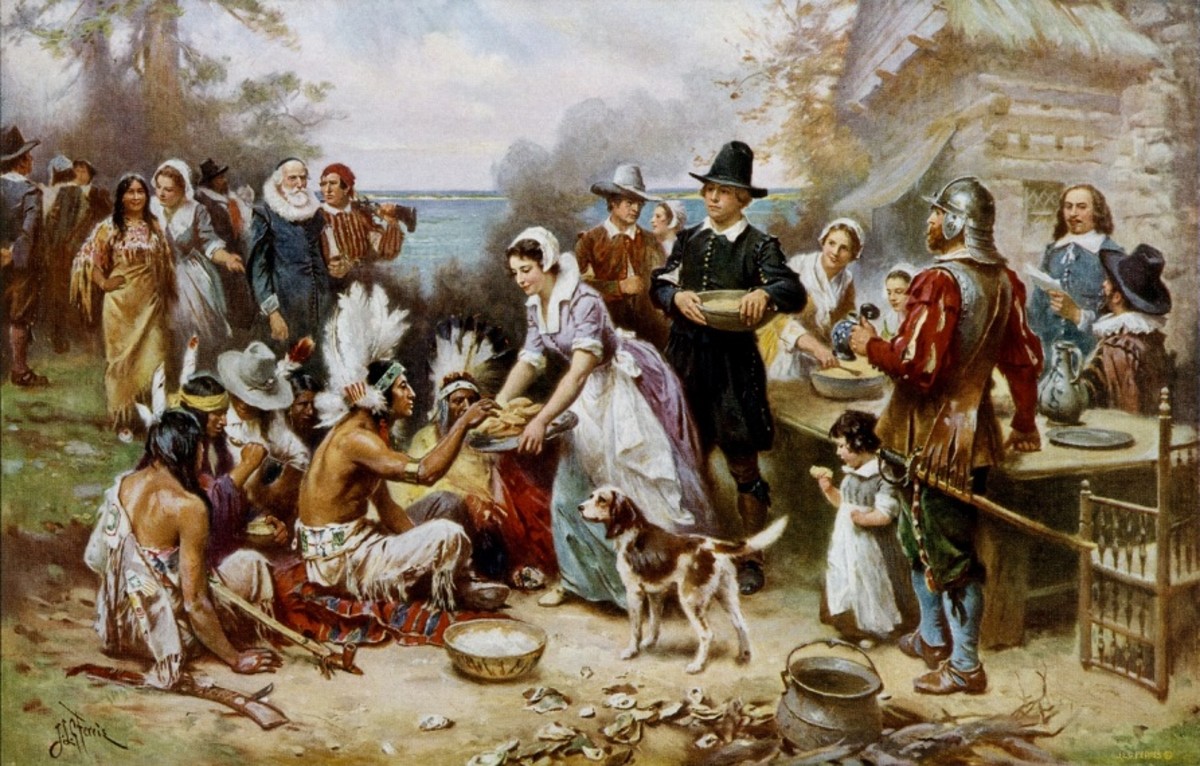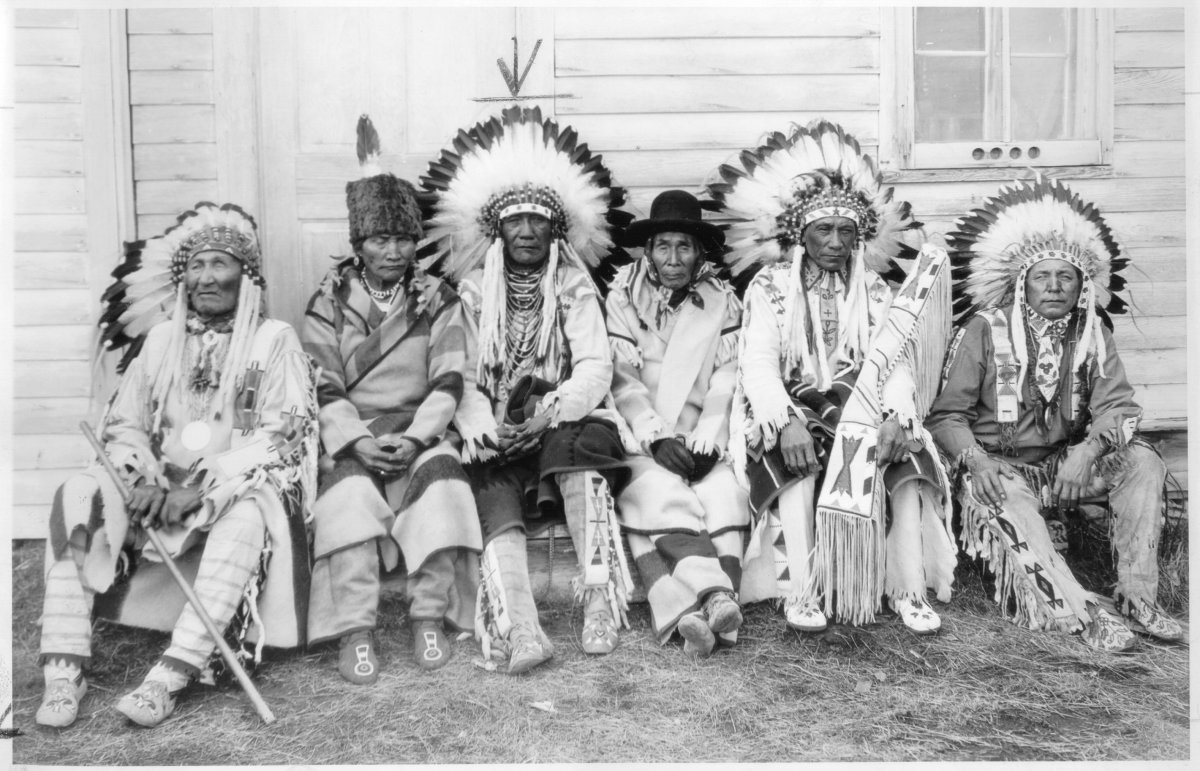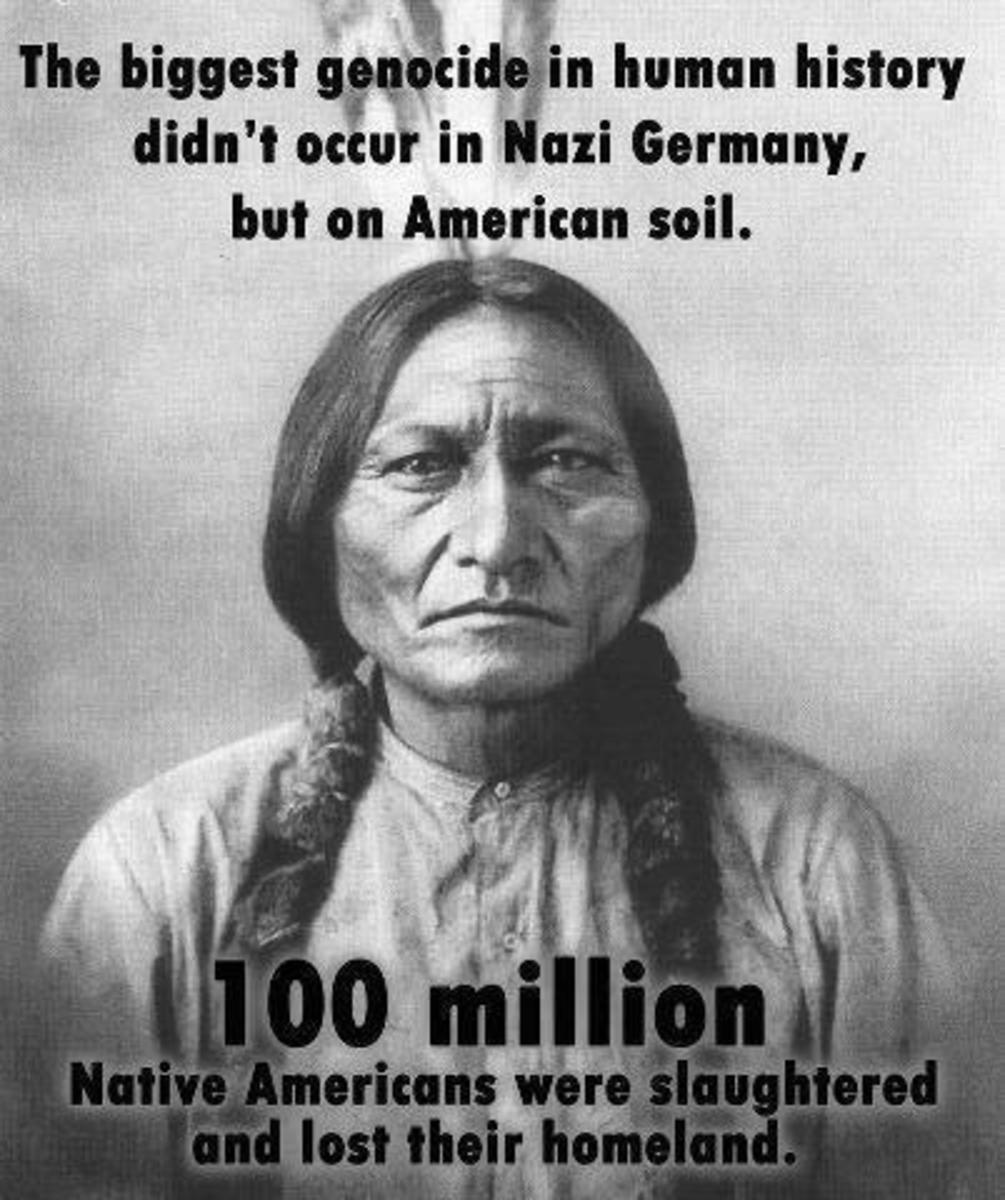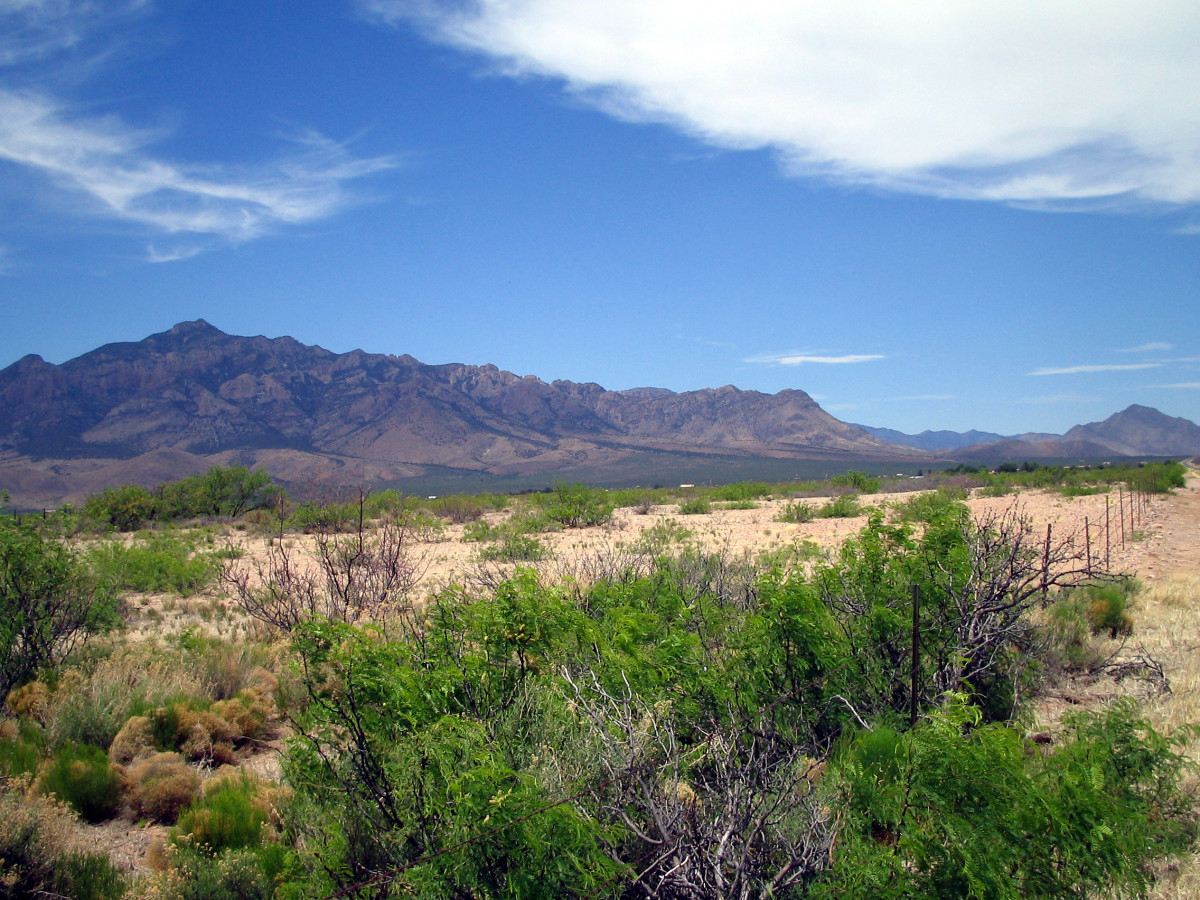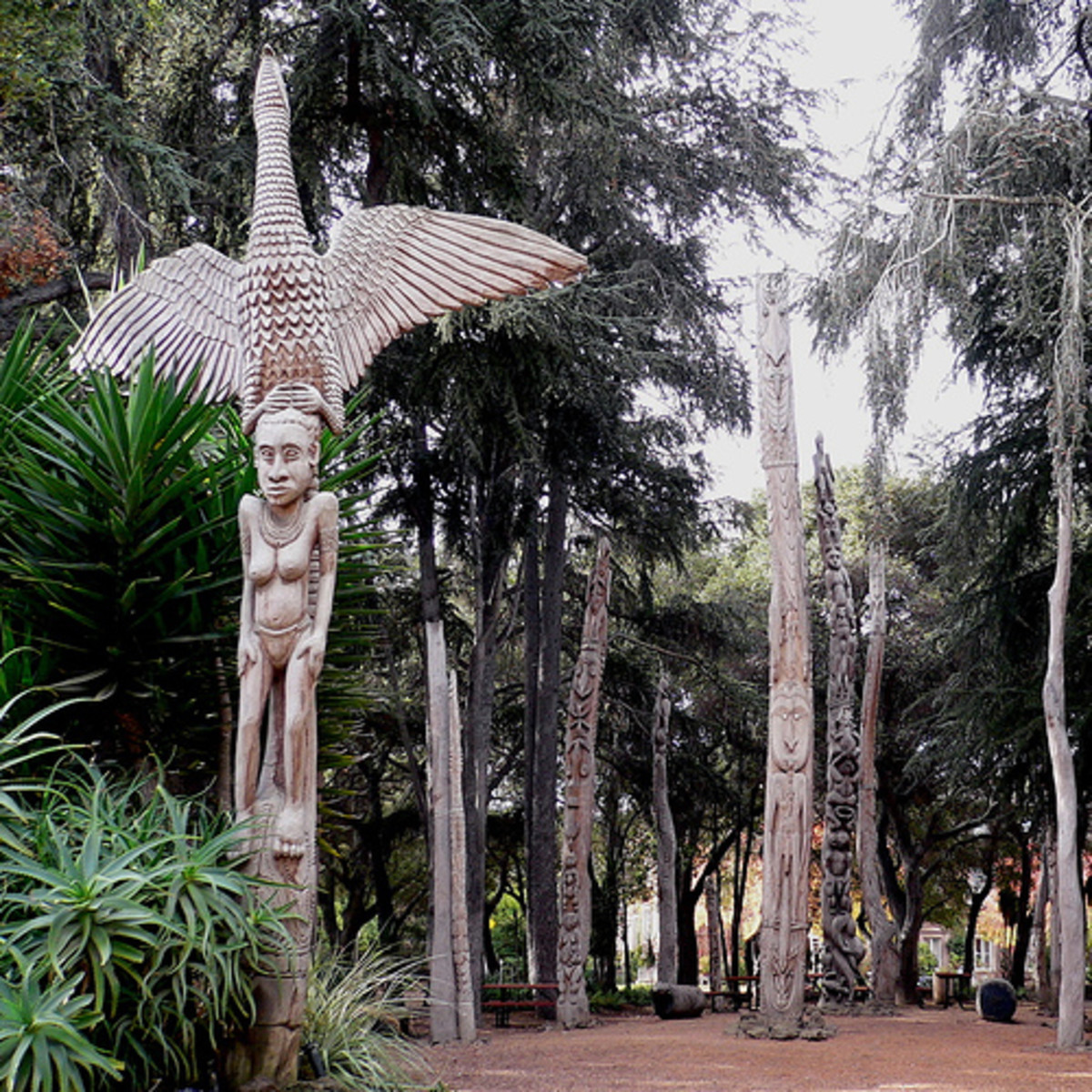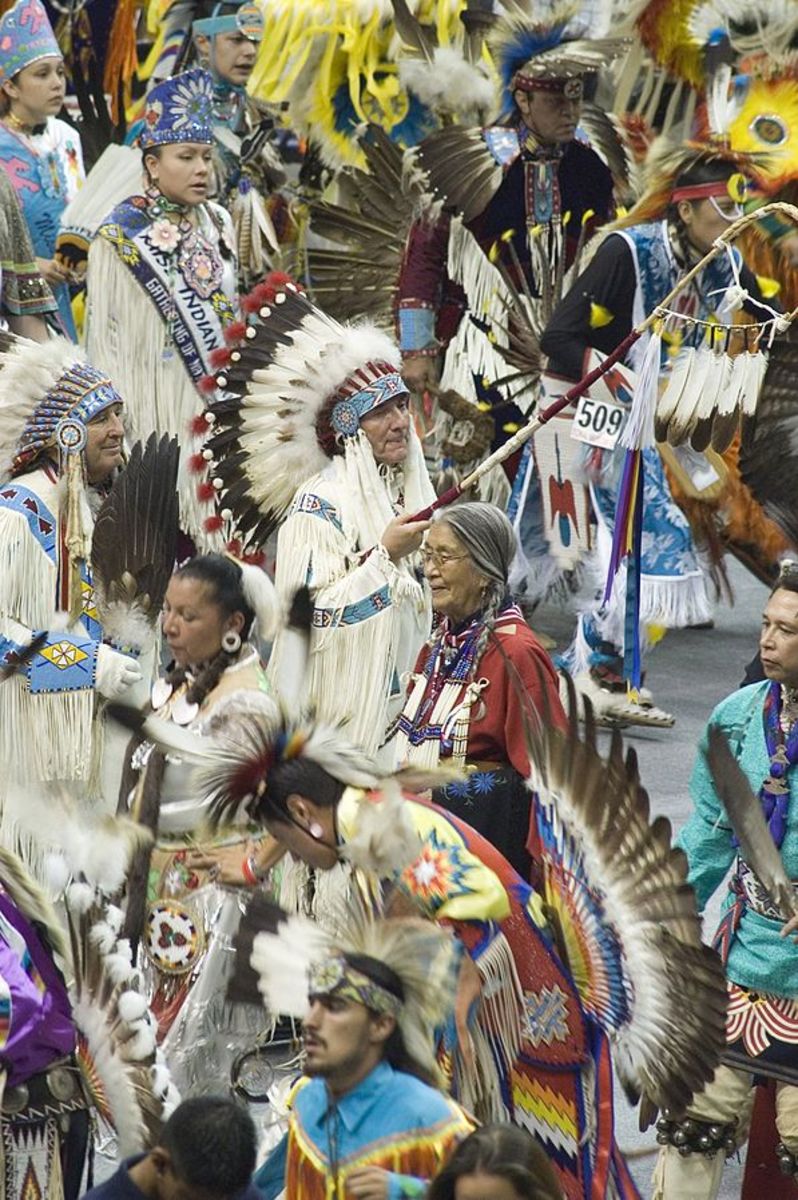- HubPages»
- Education and Science»
- History & Archaeology»
- History of the Americas
America, a Nation Blessed by God? Part Four
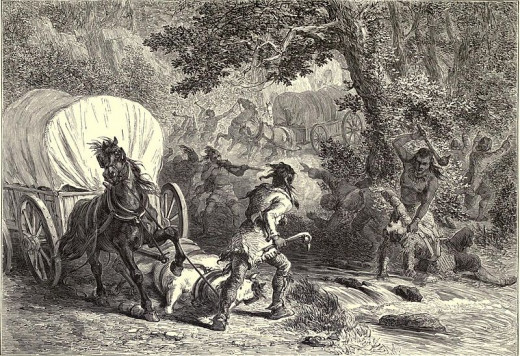
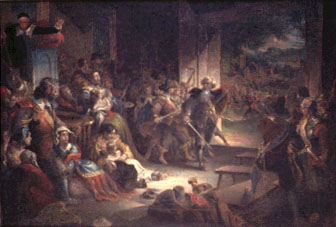
King Philip's War
In 1671 one young Indian chief betrayed his deep-seated anger when he spoke of his father, the great Indian chief and friend of the English, Massasoit: When the English came, [my] father was as a great man and the English as a litell Child, he constraened other indians from ranging the English and gave them coren and shewed them how to plant and was free to do them ani good and had let them have a hundred times more land, than now the King had for his own people. New England Outpost, Richard I. Melvoin King Philip
Massasoit spent forty years keeping the peace between the English and Indians. When he died in 1660 his son, Metacom – also called Phillip – took over. The Plymouth colonies were now over 50,000 and the Indians felt surrounded. They had lost land and were working for the English as laborers and servants.
Many Puritans were pressuring the Indians to abandon their beliefs and traditions and become Christians. This would include moving to what were termed “praying towns.” If the Christian Indians violated the Puritan code of ethics – also called the Blue Law – they would be arrested. They were forbidden to hunt and fish on the Sabbath, to use their traditional medicines, or to marry non-Christians. If they turned their backs on Christianity the Indians would be executed. The Puritans seemed to have forgotten that they came to America for religious freedom, but were denying the Indians their freedom to worship. The Indians also resented their growing dependence on English goods, and were upset that some Indians were seeking integration into English society.
Although Christian Indians were treated better than other natives, overall they were viewed as a hindrance to expansion and wealth.
King Philip spoke out against their treatment:
"Brothers ... You see this vast country before us, which the [Creator] gave to our fathers and us; you see the buffalo and deer that now are our support. Brothers, you see these little ones, our wives and children, who are looking to us for food and raiment; and you now see the foe before you, that they have grown insolent and bold; that all our ancient customs are disregarded; that treaties made by our fathers and us are broken, and all of us insulted; our council fires disregarded, and all the ancient customs of our fathers; our brothers murdered before our eyes, and their spirits cry to us for revenge. Brothers, these people from the unknown world will cut down our groves, spoil our hunting and planting grounds, and drive us and our children from the graves of our fathers, and our council fires, and enslave our women and children."
On June 24th, 1675 war broke out. Initially the English were caught off-guard and several villages were burned to the ground. For the next several months King Philip’s forces were winning the war. That is, until the English massacred 300 old men, women and children, burnt to death in their wigwams on December 19th, only six days before Christmas. Unable to plant crops, the Indians were starving. In May the English attacked an Indian force along the Connecticut River, killing three hundred more Indians. That August English troops struck King Philip’s camp, killing or capturing 173. Although Philip escaped, his wife and nine year old son were captured. To their shame, the clergy in Plymouth sold Philip’s wife and son into slavery in Bermuda.
Philip returned home and on August 12, 1676 and English army, along with some Indians who had sided with the British, surrounded his camp. Philip was shot in the heart by an Indian mercenary and his head put on display in Plymouth for the next twenty years.
Six percent of New England’s population died in King Philip’s War. Nineteen towns were destroyed or damaged and the Indian way of life was wiped out. Two major fires took place in Boston and hundreds died of smallpox in the spring of 1688. Many of the clergy considered this God’s judgment on the heathen. One only needs to be reminded of Jesus’ statement in Luke 13 to realize the fallacy of this kind of reasoning:
“Now there were some present at that time who told Jesus about the Galileans whose blood Pilate had mixed with their sacrifices. Jesus answered, “Do you think that these Galileans were worse sinners than all the other Galileans because they suffered this way? I tell you, no! But unless you repent, you too will all perish. Or those eighteen who died when the tower in Siloam fell on them—do you think they were more guilty than all the others living in Jerusalem? I tell you, no! But unless you repent, you too will all perish.”
The Puritans came to the shores of America in the seventeenth century convinced that they were on a divine mission, and that they were in covenant with God to carry it out. They considered themselves the New Israel, leaving the corrupt Old World to enter into the Promised Land of the New World.
Later generations have shared the Puritan belief that America is a very special land, a beacon of righteousness to the world. Nineteen-century expansion embraced the desire for increased territory in the religious rhetoric of "manifest destiny." In their view, it was God’s will that the American way of life and faith be spread across the continent. That it meant seizing half of Mexico was irrelevant. In some circles today it is still axiomatic that the United States of America can do no wrong, for they are the people of God.
Making Inroads
Europeans started going west to obtain the valued furs and deer skins. Guns, axes and knives, as well as cooking utensils made life easier for the Indians, and this trade arrangement worked for a while. However, the Europeans were greedy for the land itself and armies were sent to gain control.
Throughout the 1600s French and English fur traders made inroads into the country. Unfortunately, fur trade was becoming a central part of the European economy and the way Europeans traded was to try and outdo one another. Although the Indians hadn’t traded that way before, they quickly saw they could become rich by imitating the Europeans.
The younger Indians broke away from their traditional roles to pursue commercial hunting. Here we can see an excellent example of people not learning from history. Agricultural nations planted less, because pelts were used to purchase food from the European traders.
At one time Indians killed animals only in proportion to their need. That practice was now abandoned and greed was winning the day. Within decades in many areas entire populations of animals were completely exterminated. Indian nations that once traded in peace were forced into competition and even hostility.
Alcohol made things worse. A Creek Indian spoke about the effects of alcohol.
We are meant to deliberate upon what? Upon no less a subject than whether we shall or shall not be a people. The tyrant is no native to our soil, but is the pernicious liquid which our pretended White friends artfully introduced and so plentifully pours among us.”

